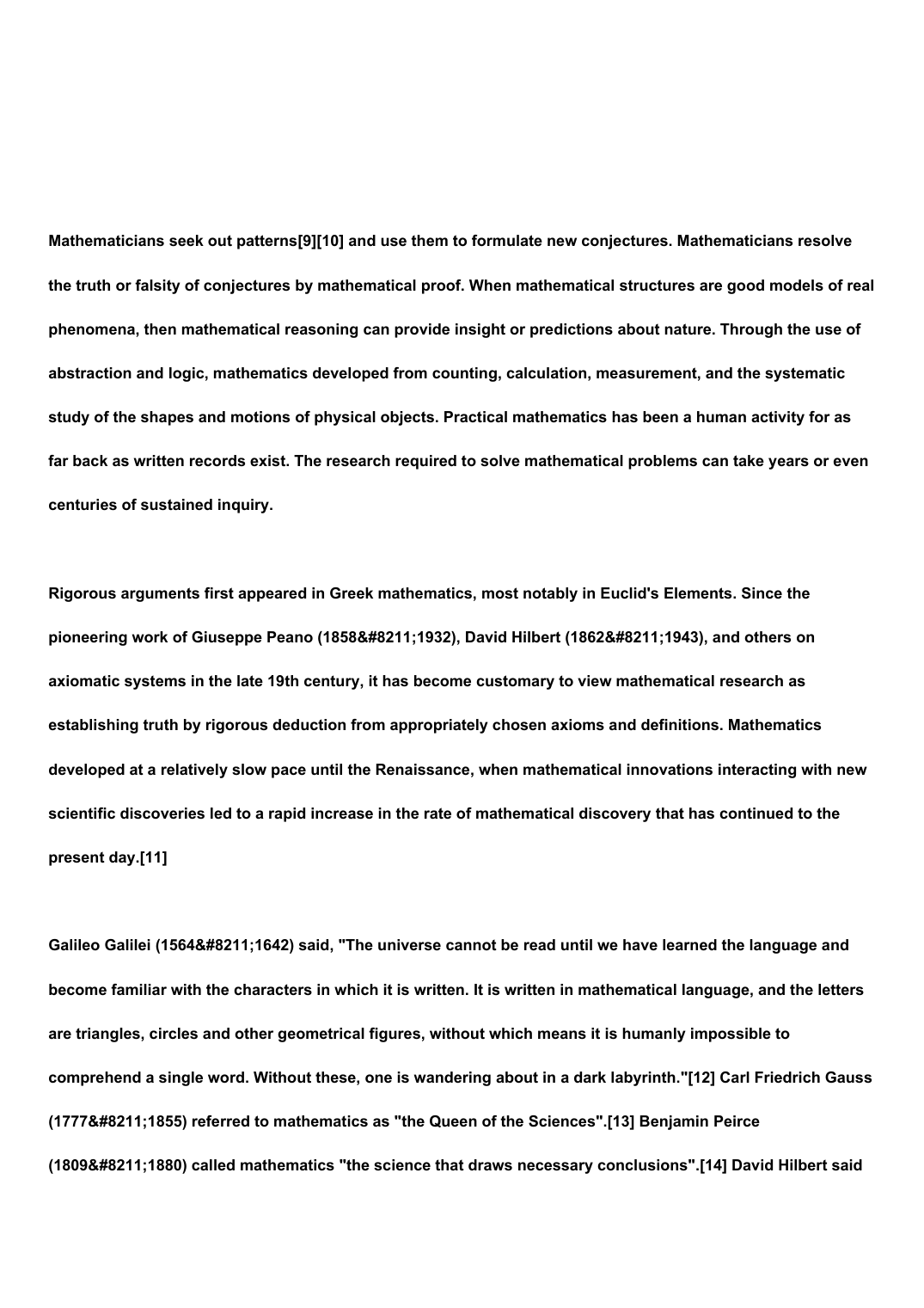Math is Fun
Publié le 22/05/2020
Extrait du document
«
Mathematicians seek out patterns[9][10] and use them to formulate new conjectures.
Mathematicians resolve
the truth or falsity of conjectures by mathematical proof.
When mathematical structures are good models of real
phenomena, then mathematical reasoning can provide insight or predictions about nature.
Through the use of
abstraction and logic, mathematics developed from counting, calculation, measurement, and the systematic
study of the shapes and motions of physical objects.
Practical mathematics has been a human activity for as
far back as written records exist.
The research required to solve mathematical problems can take years or even
centuries of sustained inquiry.
Rigorous arguments first appeared in Greek mathematics, most notably in Euclid's Elements.
Since the
pioneering work of Giuseppe Peano (1858–1932), David Hilbert (1862–1943), and others on
axiomatic systems in the late 19th century, it has become customary to view mathematical research as
establishing truth by rigorous deduction from appropriately chosen axioms and definitions.
Mathematics
developed at a relatively slow pace until the Renaissance, when mathematical innovations interacting with new
scientific discoveries led to a rapid increase in the rate of mathematical discovery that has continued to the
present day.[11]
Galileo Galilei (1564–1642) said, "The universe cannot be read until we have learned the language and
become familiar with the characters in which it is written.
It is written in mathematical language, and the letters
are triangles, circles and other geometrical figures, without which means it is humanly impossible to
comprehend a single word.
Without these, one is wandering about in a dark labyrinth."[12] Carl Friedrich Gauss
(1777–1855) referred to mathematics as "the Queen of the Sciences".[13] Benjamin Peirce
(1809–1880) called mathematics "the science that draws necessary conclusions".[14] David Hilbert said.
»
↓↓↓ APERÇU DU DOCUMENT ↓↓↓
Liens utiles
- Sujet de Math Grand Oral
- grand oral math: un singe dactylographe
- ORAL MATH: Pourquoi faut-il toujours arriver en avance à l'aéroport ?
- grand oral ses/math: UN ÉCONOMISTE EST-IL UN STATISTICIEN MALGRÉ LUI ?
- math : Faut t-il compter sur le hasard

































